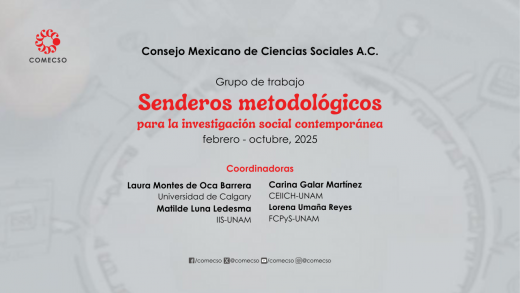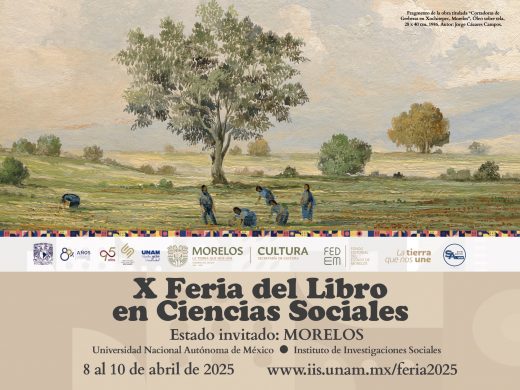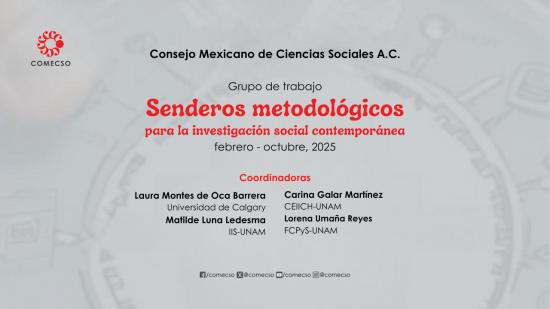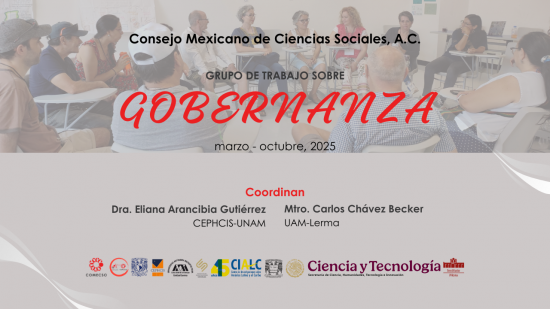Bringing Contention Back Into The Study Of Housing
Call for Papers
International Workshop
Bringing Contention Back Into The Study Of Housing
May 22-23, 2025
Université du Québec à Montréal (UQAM) Montreal, Canada
Across time and place, housing has been at the heart of urban protest and collective action dynamics that we can call “housing movements.” Madden and Marcuse define them as “popular struggles by those for whom housing means home, not real estate” (2016: 78). They materialize in institutional and extra-institutional forms of collective action in favor of equal and fair access to affordable, safe, and decent housing. They stand against forces of dispossession and displacement and claim the “right to stay put” as a complement to the “right to mobility.” Although it is not new, conflict around housing seems to have significantly intensified in many countries since the 2008 global financial crisis and the burst of the real estate speculative bubble associated with it. At the same time, however, the latter event has also shown the extent of variation across countries depending on national housing policies, tenure regimes, multiorganizational fields, and activist traditions. Gentrification, financialization, dispossession, and displacement may well be global phenomena, the resistance they encounter varies and needs to be problematized and explained.
The disciplinary fields to which authors interested in housing-related collective struggles belong are diverse: urban and political sociology, geography, urban studies and planning, anthropology, etc. While political sociologists and social movement authors refer to these collective and contentious dynamics as “housing movements” or “housing protests,” other disciplines have subsumed these phenomena into alternative labels such as “urban movements,” “resistance,” or “the right to the city.” This terminological discrepancy could be seen as the marker of a division between disciplinary fields that have evolved separately despite being interested in similar objects. As Pickvance stated some years ago, a significant feature of research on urban movements is that “it developed in relative isolation from social movements theorizing generally” (2003: 104). As a result, many writings dealing with housing struggles have neglected to problematize these struggles and have instead treated them as structural side-effects of urban transformations, financialization, gentrification, displacement, etc. Thus, the form, the strategies, the magnitude, the frequency, and other variations in housing struggles have not really been explained. Furthermore, the general emphasis on macro-structural factors has often entailed the neglect of actual, grounded actors facing particular dilemmas.
Today, the divide between the sociology of social movements and other disciplines interested in housing struggles seems to be gradually closing. For example, critical geographers of housing have expanded the analytical scope by looking at how space and place interact with networks and mediating institutions in shaping mobilization patterns. Similarly, urban studies and geography journals publish more papers that draw on approaches and concepts proposed by social movement theory, discuss the “political process” or “contentious politics” perspective, or analyze the “frames” and “repertoires of contention” used in housing struggles. However, deterministic and idealist accounts of these struggles are still very common. For the former, wherever there is residential insecurity, there is bound to be opposition. For the latter, the sense of injustice produced by dispossession will be conducive of collective action. Furthermore, in these studies, housing justice collective actors are usually treated as homogenous entities whose discourses and tactical choices are taken for granted and described rather than problematized and submitted to sociological inquiry. Thus, there is room for developing the full potentiality of social movement theory theories to studying housing struggles.
This call for papers is an invitation to identify blind spots and shortcomings in current research about housing movements and to focus and reflect on the aspects of housing movements that have not yet received much attention. We invite proposals that deal with any of these topics either from an empirical or theoretical point of view:
- While dispossession and displacement seem to touch all major cities around the world, mobilizations in favor of housing rights never seem to attract many people. How can we explain the levels of mobilization of housing rights groups? What factors facilitate or hinder the emergence of housing protests? Under what conditions can housing dispossession favor the process of mobilization? How can we account for “negative cases,” that is, the absence of protest in spite of severe instances of housing dispossession?
- Groups and networks that take part in housing movements evolve in multiorganizational settings and interact with other actors across multiple scales. How do the dynamics of multiorganizational fields and the particular scales wherein action takes place influence housing struggles? Do they contribute to the emergence of broad, cross-sectoral coalitions? Do they allow local housing groups to reach out beyond their neighborhood and engage with the central state?
- How do housing groups recruit members and mobilize? How can we make sense of engagement and disengagement processes in housing justice groups and networks?
- How can we account for the tactical and discursive claims of collective actors participating in housing struggles? What do the modes of action and discourse choices tell us about the positionality of housing struggles within their political and social context? What do they tell us about the social composition of the groups?
- In the Global North, housing movements often organize and mobilize inside housing blocks and some housing protests have taken place in housing court and other institutional spaces. In contrast, in some countries of the Global South, housing informality shapes interests and claims and collective action often takes place outside a clear institutional setting. Where do housing struggles take place? What is the terrain of housing organizing and mobilization and what difference does it make?
- To what extent and how do housing movements manage to shape housing policy? How can we account for instances of housing campaigns that were successful?
- Is it possible to compare housing movements across different institutional settings? What can be compared (what unit of analysis) and how can we make relevant comparisons between housing movements across countries (all the more when comparing the North and the South)?
INFORMATION AND GUIDELINES
The workshop will take place at the Université du Québec à Montréal (UQAM), in Montreal (QC), Canada, on May 22-23, 2025, and will be in English.
The specific format will be partly determined by the number of accepted submissions, but we aim at two days of meeting during which participants will discuss in-depth one another’s papers. We will spend approximately one hour on each paper and have two plenary sessions, at the beginning and the end of the workshop. Put differently, this is not a typical panel-based conference in which you present your research in 15 min, but an opportunity for detailed feedback, critical comments, and long conversations. Depending on the quality and coherence of the papers, we will produce either a special issue or a collective volume (or both!) out of the proceedings.
To participate in the workshop, please submit a 500-word abstract in English laying out the main argument, the method and data used, and the core of the contribution. If you submit a theory-focused paper, please make sure to specify with which authors, theories, and debates you are engaging (and those against whom you are arguing). Draft papers (between 6000 and 8000 words) will have to be submitted by May 2, 2025, so that workshop participants have enough time to read and prepare to discuss the papers. This is a crucial part of the process.
Questions, abstracts, and papers should be sent to: HousingContentionWorkshop@gmail.com
There will not be any registration fees and some funds will be available to contribute to the travel and/or accommodation expenses of some participants, with priority given to advanced doctoral students and postdoctoral scholars as well as to scholars from the Global South. The details will be specified later in the process, depending on the number of participants, their status, and geographical location.
TENTATIVE TIMELINE:
Submission of abstracts: December 16, 2024.
Decisions: January 20, 2025
Draft papers submission: May 2, 2025
Workshop: May 22-23, 2025
ORGANIZERS:
Marcos Ancelovici (Université du Québec à Montréal, UQAM)
Montserrat Emperador Badimon (Université Lumière Lyon 2 and INRS)
SCIENTIFIC COMMITTEE:
Guya Accornero (Iscte-University Institute of Lisbon)
Marcos Ancelovici (Université du Québec à Montréal, UQAM)
Nicolás Angelcos (Universidad de Chile)
Montserrat Emperador Badimon (Université Lumière Lyon 2 and INRS)
John Krinsky (City University of New York, CUNY)
Walter Nicholls (University of California at Irvine)
Download
Te puede interesar

Publicaciones del COMECSO
Roberto Holguín Carrillo - Ene 08, 2025Este espacio reúne la gran mayoría de la producción editorial de nuestra asociación. A lo largo de casi cinco décadas,…

Grupo de Trabajo Senderos Metodológicos
comecso - Abr 02, 2025Coords. Laura Montes de Oca Barrera, Matilde Luna Ledesma, Carina Galar Martínez y Lorena Umañana Reyes Jornadas de febrero…

X Feria del Libro en Ciencias Sociales
Laura Gutiérrez - Abr 02, 2025Universidad Nacional Autónoma de México, Instituto de Investigaciones Sociales X Feria del Libro en Ciencias Sociales 8, 9 y 10…

Convocatoria para presentar propuestas de dossier en la Revista Sociológica
Laura Gutiérrez - Abr 02, 2025Universidad Autónoma Metropolitana, Unidad Azcapotzalco Revista Sociológica Convocatoria para presentar propuestas de dossier al Comité Editorial de la Revista Sociológica…











Thinker Pedia For the reason that the admin of this site is working, no uncertainty very quickly it will be renowned, due to its quality contents.